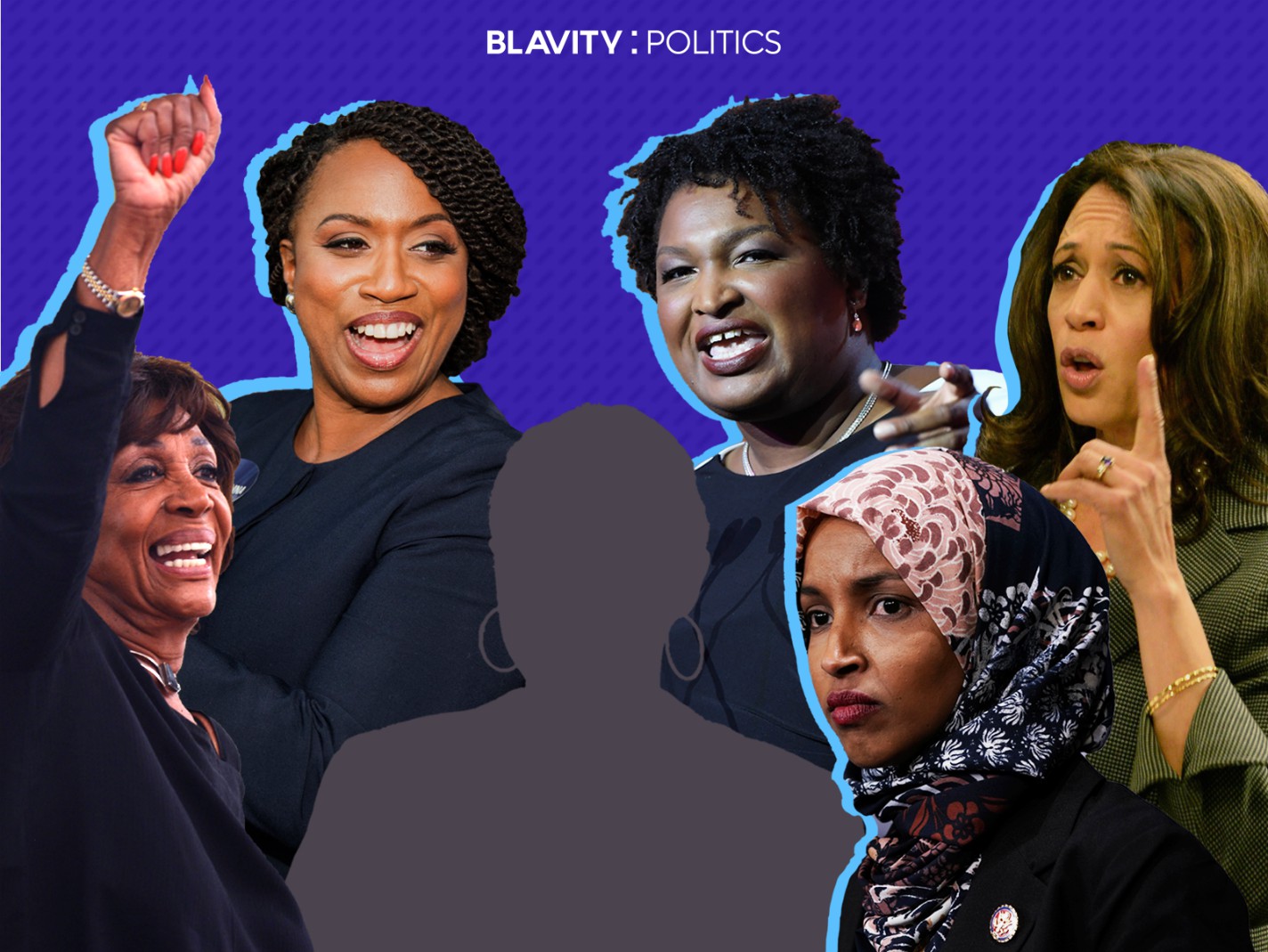Many Black women made headlines after winning seats in the political office. However, after coming out on top, the conversation around their work never saw the light. Instead, other politicians like Alexandria Ocasio-Cortez and Elizabeth Warren have captured the media by storm, with constant stories on their political moves and comments. Although many of the female politicians have lined up in support of each other, there is still constant neglect by the public of the progress that Black female politicians have worked toward since starting their positions. Black women's political work isn't getting the attention it deserves.
Often, the public only shines a light on these women when they are the first Black woman to participate in any political race or action. Unless they are making history, Black women are otherwise neglected from political attention. Their visibility then is reduced to headline exploitation and deemed worthy of recognition as a spectacle, rather than as a significant political contributor.
For instance, most constituents were not familiar with Stacey Abrams as a politician until she entered the 2018 gubernatorial race and gathered Democratic support as the first Black, female gubernatorial nominee in the state of Georgia. Since her announcement to run for governor, she is now seen as a prominent political figure used as a prop for political moments to display liberalism and diversity. Yet, she didn’t win the position.
Although not a career politician, Rep. Ilhan Omar grabbed national attention as one of the first Muslim women to be elected to Congress. However, since her electoral win, most of her political moves such as her lift of religious head wrap ban on House floor have not been heavily broadcasted like the work of her non-black peers. Instead, her mistakes have been given more attention than the bills that she has sponsored.
Make sure you're following Blavity:Politics on Instagram and join our daily newsletter to stay engaged and informed.
Black female politicians are not immune to the exceptionalism that is given to black women in any career field. Their political performance is held to high standards that have been historically set by white men, who only grant human privileges to those who meet them.
Unfortunately, unless black women are in top political positions, their work will continue to be overshadowed by those who benefit from societal privileges. The sense of importance is given to black female politicians’ work when hierarchical government politics grants it to them, elevating their social status into a notable political one.
Kamala Harris’ political work was only acknowledged when she became California’s attorney general, and again as a senator of California. Even though she worked with famous politicians such as John Kerry, Ayanna Pressley didn’t become a political household name until she made it to the House of Representatives. To be legitimately seen and respected, Black women have to gain a high political status that often requires constant image maintenance and comes with strict behavioral expectations.
When they are not being recognized for being exceptional, Black female politicians also get noticed when their actions are attributed to Black female archetypes or stereotypes. When Black women are trending in politics for other reasons than making history, they are made into familial characters that cater to traditionally sexist and racist ideas. They are only given cultural acceptance as politicians when they portray two particular Black, female tropes: The warm, affectionate mother figure or the angry, strong Black woman.
Some Black female politicians even become caricatures of both tropes. When Maxine Waters challenged those who sent her bomb threats or was “reclaiming her time” on the House floor, she was characterized as a tough, no-nonsense politician by white press. But when interpreted by Black people, her actions made her be “Auntie Maxine.” The longest-serving Black woman in the House, Maxine Waters’ political actions throughout the entirety of her career are rarely publicized as frequently as her critical responses and intolerance to blatant racism and sexism. These labels are seen as signs of affirmation, but also undermine the hard work that Black, female politicians put in to meet political goals and be taken seriously by the general public.
As long as we have a political system that upholds white superiority and patriarchy, Black women will have to go through extra hoops just to be viewed as significant in politics. With the gates opening up for more black female candidates to join political races, Black women will need more support than ever before to uplift their work. We have to recognize when Black women aren’t being included in political conversations and become aware of the social dynamics that minimizes their political presence.
Now, check this out:
Here’s 7 Young Black Politicians To Keep An Eye On In 2019
Kamala Harris Defends Her Blackness and Interracial Marriage
